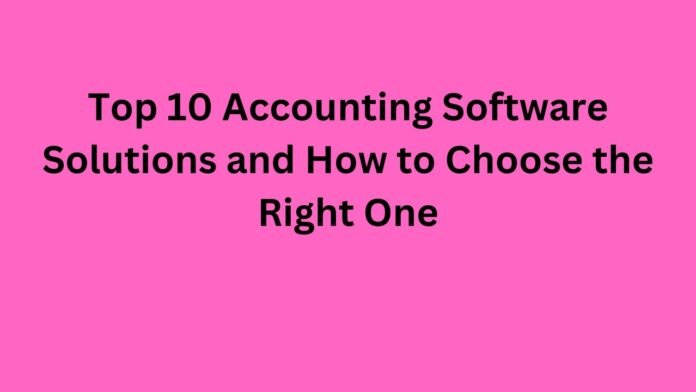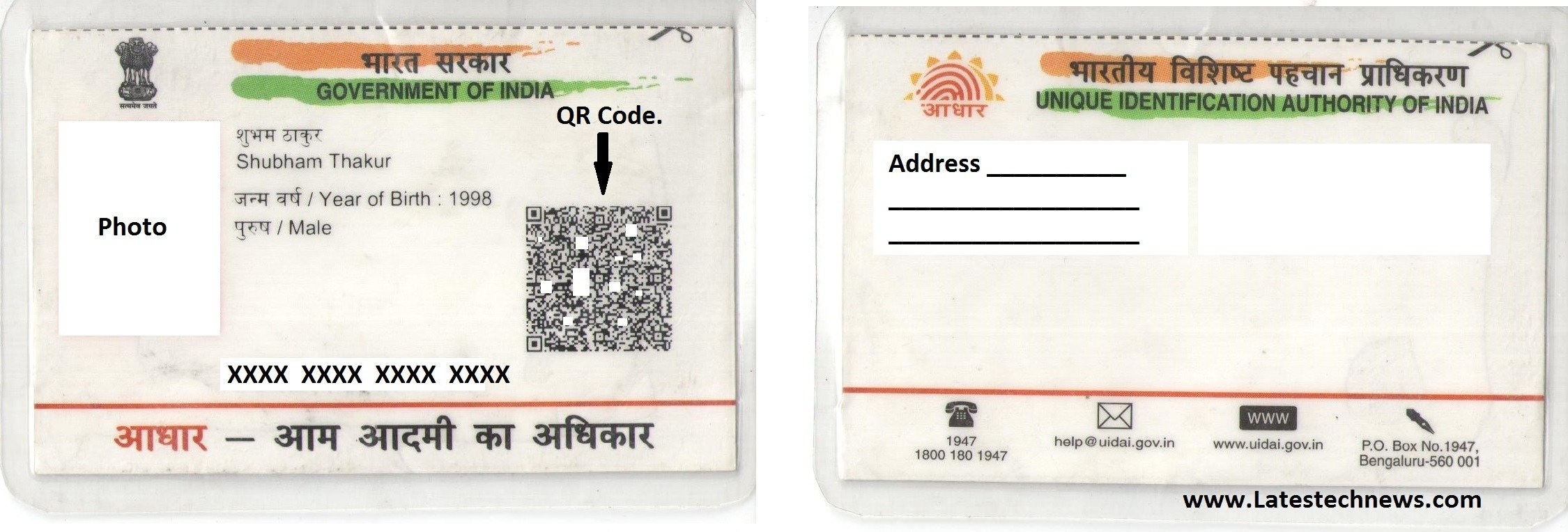In the realm of business management, effective financial management is paramount for success. Accounting software plays a pivotal role in streamlining financial processes, improving accuracy, and enhancing decision-making. With a plethora of options available, selecting the right accounting software can be a daunting task. In this article, we’ll explore the top 10 accounting software solutions and provide insights into how to choose the right one to meet your business’s specific needs and objectives.
Understanding the Importance of Accounting Software:
Accounting software is a tool that automates and simplifies financial tasks such as bookkeeping, invoicing, payroll processing, budgeting, and reporting. By centralizing financial data, tracking transactions in real-time, and generating accurate financial statements, accounting software enables businesses to maintain financial transparency, compliance, and efficiency.
Factors to Consider When Selecting Accounting Software:
Several factors should be taken into account when choosing accounting software for your business:
- Business Size and Complexity: Consider the size and complexity of your business operations, including the number of employees, transactions, and revenue streams. Choose accounting software that can scale with your business and accommodate its unique needs and growth trajectory.
- Features and Functionality: Evaluate the features and functionality offered by different accounting software solutions, including core accounting modules (such as general ledger, accounts payable, accounts receivable), payroll processing, inventory management, reporting tools, and integrations with other business systems.
- Ease of Use: Look for accounting software that is user-friendly, intuitive, and easy to navigate, with a clean and organized interface. Consider the learning curve for yourself and your team members and choose software that aligns with your technical proficiency and comfort level.
- Cloud-Based vs. On-Premises: Decide whether you prefer cloud-based accounting software, which offers accessibility, flexibility, and automatic updates, or on-premises software, which provides greater control and security but requires more infrastructure and maintenance.
- Cost and Affordability: Compare the pricing plans, subscription fees, and licensing options for different accounting software solutions, taking into account your budget, cost-benefit analysis, and return on investment (ROI).
- Customer Support and Training: Assess the level of customer support, training resources, and technical assistance provided by the accounting software vendor, including online tutorials, user guides, help documentation, and responsive customer service channels.
- Security and Compliance: Prioritize data security, privacy, and regulatory compliance when selecting accounting software, ensuring that the software meets industry standards and regulations such as GDPR, HIPAA, and PCI DSS.
- Integration Capabilities: Consider the integration capabilities of the accounting software with other business systems, such as CRM software, project management tools, e-commerce platforms, and payment gateways, to streamline data flow and workflow automation.
Top 10 Accounting Software Solutions:
Now, let’s explore the top 10 accounting software solutions available in the market today, each offering unique features, benefits, and pricing options:
QuickBooks Online:
QuickBooks Online is a cloud-based accounting software solution designed for small businesses and freelancers, offering features such as invoicing, expense tracking, bank reconciliation, and financial reporting. With multiple pricing plans and scalability, QuickBooks Online caters to businesses of all sizes and industries.
Xero:
Xero is a cloud-based accounting software platform known for its user-friendly interface, automation capabilities, and robust accounting features. Xero offers features such as bank feeds, invoicing, payroll processing, expense claims, and multi-currency support, making it ideal for small and medium-sized businesses.
FreshBooks:
FreshBooks is a cloud-based accounting and invoicing software solution geared towards self-employed professionals, freelancers, and small businesses. FreshBooks offers features such as time tracking, project management, expense tracking, client communication, and customizable invoices.
Sage Intacct:
Sage Intacct is a cloud-based financial management and accounting software solution designed for mid-sized businesses and enterprise organizations. Sage Intacct offers advanced features such as multi-entity management, revenue recognition, project accounting, and financial consolidation.
Zoho Books:
Zoho Books is a cloud-based accounting software solution that offers features such as invoicing, expense tracking, bank reconciliation, inventory management, and financial reporting. Zoho Books integrates seamlessly with other Zoho applications and third-party business tools.
Wave:
Wave is a free cloud-based accounting software platform designed for small businesses, freelancers, and entrepreneurs. Wave offers features such as invoicing, accounting, receipt scanning, payroll processing, and financial reporting, with optional paid add-ons for advanced functionality.
QuickBooks Desktop:
QuickBooks Desktop is an on-premises accounting software solution that offers robust features for small businesses, including general ledger, accounts payable, accounts receivable, payroll processing, and inventory management. QuickBooks Desktop is available in multiple editions tailored to different industries and business needs.
SAP Business One:
SAP Business One is an integrated enterprise resource planning (ERP) software solution designed for small and medium-sized businesses. SAP Business One offers features such as financial accounting, sales and customer management, inventory control, production planning, and business intelligence.
NetSuite:
NetSuite is a cloud-based ERP software suite that offers comprehensive financial management, accounting, CRM, e-commerce, and inventory management capabilities. NetSuite is designed for mid-sized businesses and enterprise organizations looking for a unified platform to streamline operations and drive growth.
Microsoft Dynamics 365 Finance:
Microsoft Dynamics 365 Finance is an enterprise-grade ERP software solution that offers financial management, accounting, budgeting, forecasting, and reporting capabilities. Microsoft Dynamics 365 Finance integrates seamlessly with other Microsoft products and services, providing scalability and flexibility for large organizations.
Selecting the Right Accounting Software:
When selecting accounting software for your business, consider the following steps to ensure you choose the right solution:
- Assess Your Needs: Identify your business’s specific accounting needs, including core accounting functions, industry requirements, and growth objectives.
- Research Options: Research different accounting software solutions, compare features and pricing plans, and read reviews from other users to gain insights into each platform’s strengths and weaknesses.
- Take Advantage of Trials: Take advantage of free trials, demos, or test accounts offered by accounting software vendors to explore the software’s features, functionality, and usability firsthand.
- Consider Scalability: Choose accounting software that can grow and scale with your business, accommodating future expansion, increased transaction volume, and evolving business requirements.
- Seek Recommendations: Seek recommendations from peers, industry associations, or business advisors who have experience using accounting software in similar business environments.
- Plan for Implementation: Develop an implementation plan for migrating data, training employees, and integrating the accounting software with other business systems to ensure a smooth transition and maximize adoption.
- Evaluate Support: Evaluate the level of customer support, training resources, and technical assistance provided by the accounting software vendor to ensure ongoing support and assistance when needed.
Conclusion:
Accounting software plays a critical role in managing finances, streamlining operations, and driving business growth. By understanding the importance of accounting software, considering key factors when selecting a solution, and exploring the top 10 accounting software options available in the market, businesses can make informed decisions to choose the right software to meet their accounting needs and objectives. Whether you’re a small business owner, a mid-sized enterprise, or a large corporation, finding the right accounting software can empower you to make smarter financial decisions, improve productivity, and achieve greater success in today’s competitive business landscape.









![5 Best Xbox Emulators For PC 2019 [Download Link Included] Xbox Emulators](https://latestechnews.com/wp-content/uploads/2019/08/Xbox-Emulators.jpg)











